The CBD Expert Series: CBD Dosage & Adverse Effects with a Naturopathic Doctor
We sat down with Dr. Jamie Corroon, ND, MPH, founder and Medical Director of the Center for Medical Cannabis Education headquartered in Encinitas, California, to talk about his experience using CBD safely and effectively in clinical practice. In addition to running his practice, Jamie has authored multiple, peer-reviewed studies on cannabis and cannabidiol (CBD).
In this interview, you’ll get Jamie’s perspective on CBD’s adverse effects and pointers for finding a dosage that’s right for you.
The following information is presented for educational purposes only. It is not intended to be used to diagnose, cure, mitigate, treat, or prevent any disease.
Nick Musica (CBD Oil Review): Can you tell us about your clinical practice? What does it look like? What kind of patients do you see?
Dr. Jamie Corroon (Center for Medical Cannabis Education): I’ve been using cannabinoids, like CBD and THC, in my clinical practice for almost three years now. I practice in California where my patients have access to marijuana and hemp-derived CBD products from licensed retailers and manufacturers. Obviously, the hemp-derived CBD products are more widely available.
Most of my patients are older, don’t want to inhale and don’t want to get high. They are curious and cautious at the same time. They’ve lived through the “Drug War” and are now hearing a totally different story about the cannabis plant. They have been told for decades that it was a threat to personal and public health. Now they are hearing that it may be a panacea—at least that’s the prevailing story about CBD right now. There is confusion, but there is also curiosity.
They’ve lived through the “Drug War” and are now hearing a totally different story about the cannabis plant.
What kind of conditions or symptoms do you typically treat with CBD?
The most common conditions, or symptoms, I see in my practice are chronic pain, sleep disorders, anxiety, and auto-immune disorders. A subset of my patients are children with seizure disorders or autism spectrum disorders.
Not coincidentally, this overlaps nicely with the most common reasons why people use CBD. I published a study on this in 2018.
CBD is available everywhere, it seems. As is advice on how to use it. Why should people bother to see a doctor?
This is a really good question. First, don’t believe everything you read on the Internet. Second, don’t believe everything you read on the Internet!
If you intend to use CBD for a medical purpose, it’s probably a good idea to talk to a licensed healthcare provider of some sort, especially if you are on multiple prescription drugs. The budtender at the dispensary, the sales rep at the natural products store, these folks probably don’t have any formal medical education and training. I’m not trying to disparage them because many are knowledgeable and well-intentioned. If fact, they have filled a void created by licensed healthcare providers who have not spent the time and effort to learn how to use cannabinoids as therapeutic tools. But they may not understand things like pharmacokinetics, drug interactions, and adverse effects. Also, they may have a conflict of interest. Don't forget, they are trying to sell you something!
Does CBD have any adverse effects people should be aware of?
Let’s focus on safety for a minute. Despite the fact that CBD is regarded as having a “favorable safety profile” by the World Health Organization and others, it is not harmless. It is not without adverse effects.
It’s important to clarify, however, that adverse effects are dose-dependent. The risk of an adverse effect may be very low at one dose, and much higher at another. Also, if the “CBD product” is derived from marijuana, there may be enough THC in the product to lead to an unexpectedly undesirable and unpleasant experience.
Most of what we know about the adverse effects of CBD come from clinical trials that use high doses of CBD isolate, which is CBD purified from an extract so as to eliminate the other constituents, and surveys of individuals who use hemp-derived CBD products that they purchase over-the-counter.
If you intend to use CBD for a medical purpose, it’s probably a good idea to talk to a licensed healthcare provider of some sort, especially if you are on multiple prescription drugs.
In the study I mentioned earlier, we found that roughly a third of individuals using hemp-derived CBD products report an adverse effect. The most common adverse effects in that study look a lot like the most common undesirable effects of using THC, including dry mouth, anxiety, hunger, and sedation. So perhaps there is some confounding, but the clinical trials using isolated CBD offer another perspective.
Some of your readers may know that the FDA-approved CBD isolate as a prescription drug in June 2018 to treat two rare childhood seizure disorders, Dravet Syndrome and Lennox-Gastaut Syndrome. The drug is called Epidiolex. The FDA does not approve drugs without acceptable safety and tolerability data.
However, to glean some info on the potential adverse effects of CBD, we can look at the package insert for Epidiolex. Under the Adverse Reactions section, it states: “The most common adverse reactions…are somnolence; decreased appetite; diarrhea; transaminase elevations; fatigue, malaise, and asthenia; rash; insomnia, sleep disorder, and poor quality sleep; and infections.”
To break down some of the lesser known terms: “Somnolence” basically means fatigue, drowsiness, or sleepiness; transaminases are liver enzymes, and “transaminase elevations” refers to elevations in liver enzymes, which are indicative of liver injury; “asthenia” means a lack of energy and physical strength.
Context is everything. The participants in the clinical trials included in the drug approval process for Epidiolex were kids with rare seizure disorders. They were on multiple prescription drugs, and they were taking high doses of CBD, around 20 mg/kg, or so, per day.
Despite the fact that CBD is regarded as having a “favorable safety profile” by the World Health Organization and others, it is not harmless. It is not without adverse effects.
To put this in perspective, according to the Centers for Disease Control and Prevention (CDC), the average American woman aged 20 years and older weighs 170.6 pounds. At 20 mg/kg, that’s 1,551 milligrams of CBD per day!
Obviously taking 1,500 milligrams of CBD poses a greater risk of producing an adverse effect than taking 15 milligrams. And, importantly, the risk is greater if you are taking multiple prescription drugs. So, the bottom line is that it’s a good idea to see a healthcare provider, especially if you plan to take a high dose of CBD and are taking multiple prescription drugs.
Advocates of full-spectrum hemp extracts will argue that you don’t need to use such high doses because of the entourage effect. As a result, you don’t need to be overly concerned about adverse effects, including elevated liver enzymes.
What are your thoughts about how to effectively dose CBD?
The conversation around CBD always comes back to dose. Everyone wants to know how much to take. The start-low-and-go-slow approach was adopted from THC-containing products, where too high a dose might lead to intoxication and impairment. That’s not the case with CBD, but many have adopted this approach, nonetheless.
Finding the correct CBD dosage is a combination of many factors, including the individual patient, clinical objectives, formulation, and method of administration.
Healthcare providers are consistently reporting positive outcomes across a variety of medical conditions using dosages of CBD— in an extract—that are considerably lower than dosages of isolated CBD used in clinical trials. For example, one clinical trial showed that 600 milligrams of CBD can reduce anxiety, yet healthcare providers are reporting using less than 10% of that in clinical practice with great success. This is the case across the board, for PTSD, pain, seizure disorders, etc.
Finding the correct CBD dosage is a combination of many factors, including the individual patient, clinical objectives, formulation, and method of administration.
Ideally, you don’t take more than you need. This is another reason why the start-low-and-go-slow approach has merit. It you start with too high of a dose, you’ll never know if a lower dose may have been equally effective. The goal is to determine the “minimum effective dose”, the lowest dose possible that results in the best possible outcome. Sometimes this takes some experimentation.
I may disappoint your readers here, who are looking for hard numbers to guide them, but most dosing decisions are based on the experience and clinical observations of healthcare providers. Another reason for consulting one before concluding whether CBD may, or may not, be helpful.
More Expert Series Interviews
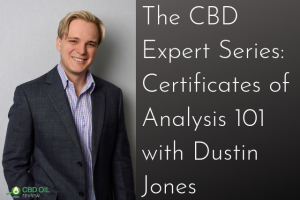
The CBD Expert Series: Jackie Bowen on Mislabeled & Misleading CBD Oil
Read More
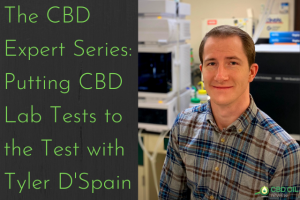
The CBD Expert Series: Putting CBD Lab Tests to the Test with Tyler D'Spain
Read More
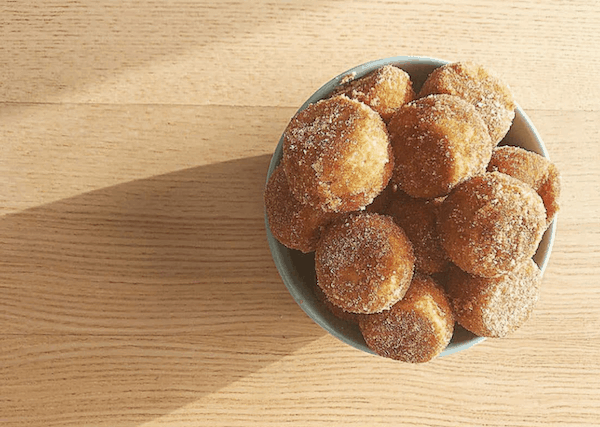
MasterChef Nick Nappi's CBD Apple Cider Donut Hole Recipe
Read More
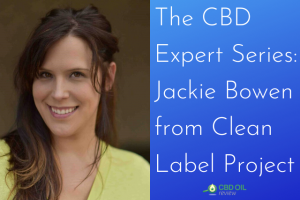
The CBD Expert Series: Jackie Bowen from Clean Label Project
Read More

The CBD Expert Series: Certificates of Analysis 101 with Dustin Jones
Read More
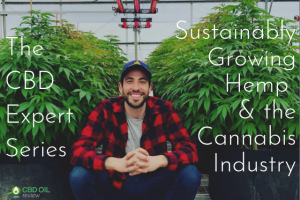
The CBD Expert Series: Sustainably Growing Hemp & the Cannabis Industry
Read More
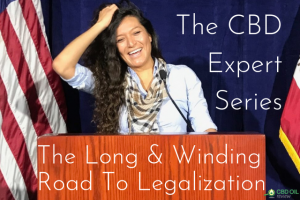
The CBD Expert Series: The Long & Winding Road To Legalization
Read More
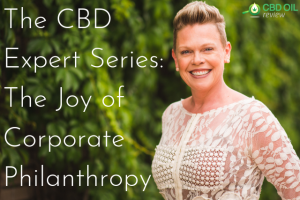
The CBD Expert Series: The Joy of Corporate Philanthropy
Read More
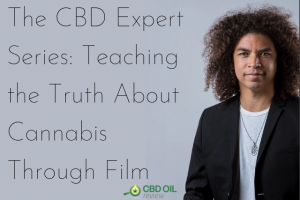
The CBD Expert Series: Teaching the Truth About Cannabis Through Film
Read More
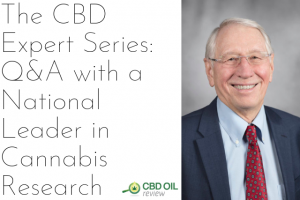
The CBD Expert Series: Q&A with a National Leader in Cannabis Research
Read More
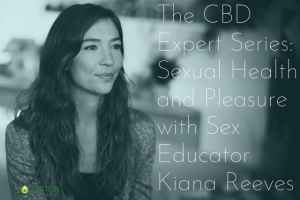
The CBD Expert Series: Sexual Health and Pleasure with Sex Educator Kiana Reeves
Read More
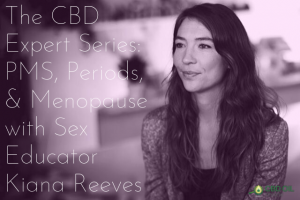
The CBD Expert Series: PMS, Periods, & Menopause with Sex Educator Kiana Reeves
Read More
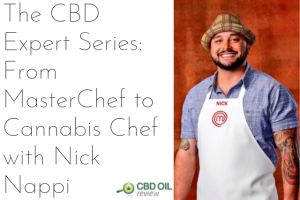
The CBD Expert Series: From Masterchef to Cannabis Chef with Nick Nappi
Read More
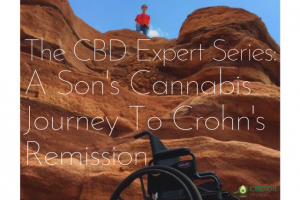
The CBD Expert Series: A Son's Cannabis Journey To Crohn's Remission
Read More
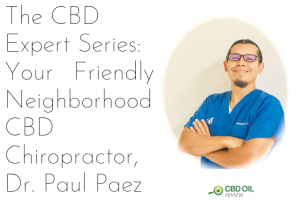
The CBD Expert Series: Your Friendly Neighborhood CBD Chiropractor, Dr. Paul Paez
Read More
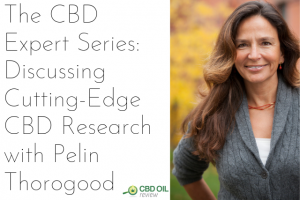
The CBD Expert Series: Discussing Cutting-Edge CBD Research with Pelin Thorogood
Read More
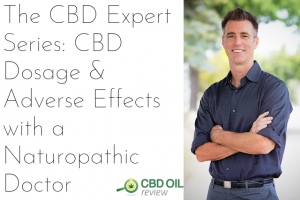
The CBD Expert Series: CBD Dosage & Adverse Effects with a Naturopathic Doctor
Read More

The CBD Expert Series: Talking Drug Tests with a Lab Tech
Read More
Opinions expressed in this article are those of our guest (the interviewee) and not necessarily of CBD Oil Review.
6 Smart Questions to Ask BEFORE You Buy CBD
Get the Ultimate CBD Buyer’s Guide and you won’t look at CBD the same way again!



 search
search